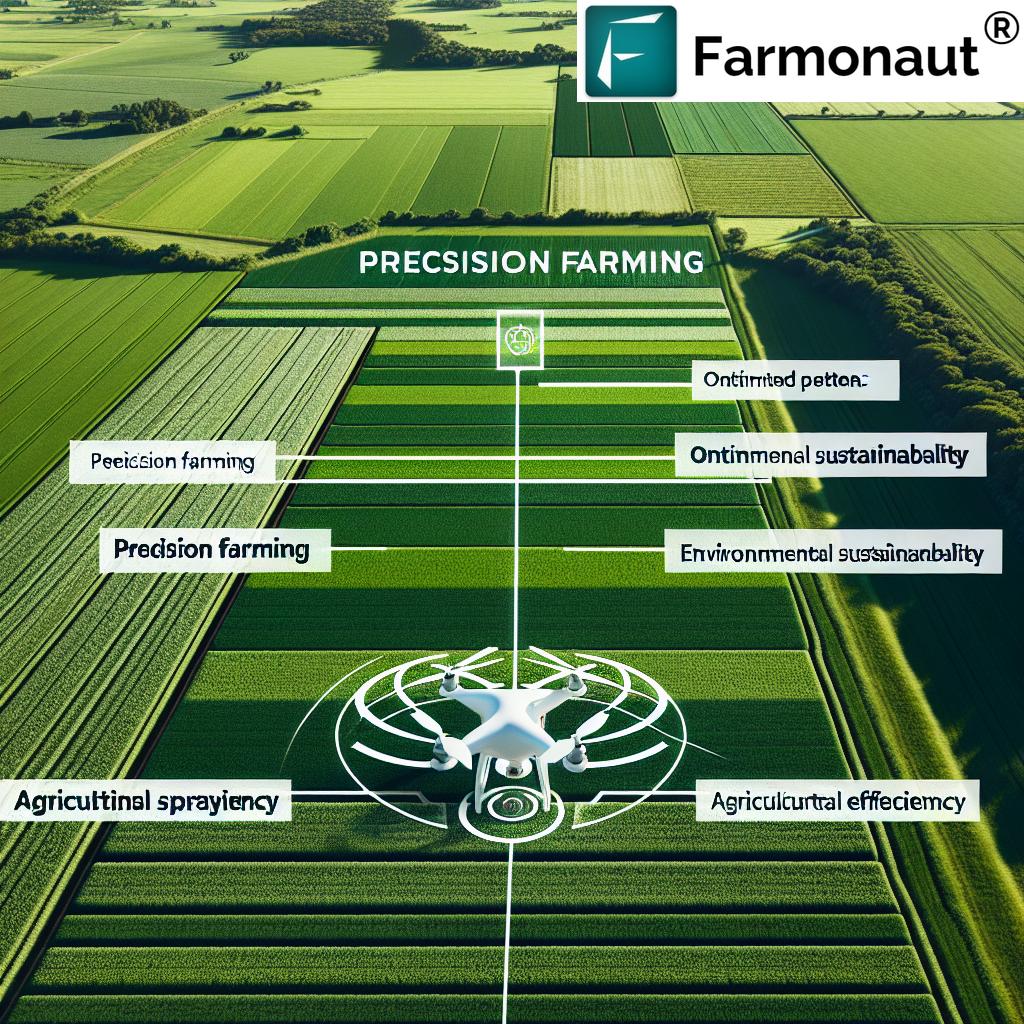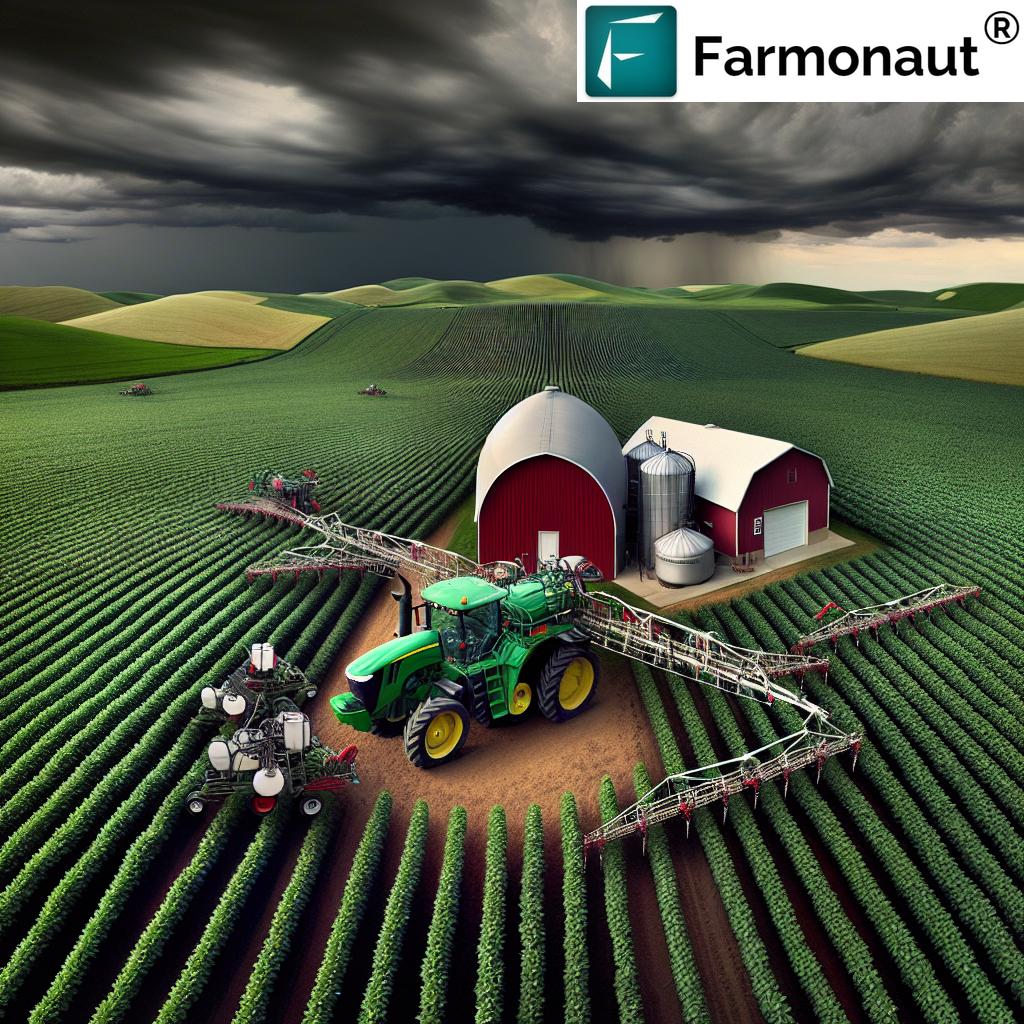Butte County’s Agricultural Legacy: Lessons in Compliance, Community, and Crop Management
“A retiring agricultural commissioner with 38 years of experience shares insights on navigating complex farm compliance requirements.”
“Effective leadership in agricultural agencies can support local farmers through challenges like adverse weather impacting crop yields.”
In the heart of California’s agricultural landscape, Butte County stands as a testament to the resilience and innovation of the farming community. As we delve into the remarkable career of Louie Mendoza, the retiring Butte County Agricultural Commissioner, we uncover a wealth of knowledge on agricultural regulations, farm compliance requirements, and the delicate balance between enforcing rules and advocating for farmers. This comprehensive case study offers invaluable lessons in compliance, community engagement, and crop management that resonate far beyond the borders of Butte County.
The Journey of an Agricultural Visionary
Louie Mendoza’s 38-year career in agriculture is a story of passion, dedication, and unwavering commitment to the farming community. His journey began on his family’s 40-acre almond orchard in Butte County, planting the seeds for a lifelong connection to the land. Although Mendoza initially pursued a career in dentistry after earning a biology degree from Chico State, fate had other plans for him in the world of agriculture.
His pivot to agriculture came when he discovered his true calling while working as an agricultural biologist in Glen County. This experience laid the groundwork for his future roles, eventually leading him to become the deputy agricultural commissioner in Butte County in 1994. After a decade of service, Mendoza’s expertise was recognized beyond county lines, and he served as commissioner in Yuba County for eight years before returning to his roots in Butte County – a move he describes as the fulfilling culmination of his career.

Navigating Agricultural Regulations and Farm Compliance
One of the most significant challenges Mendoza faced throughout his career was adapting to and implementing evolving agricultural regulations. The agricultural industry is subject to a complex web of rules and standards designed to ensure food safety, environmental protection, and fair practices. As the Agricultural Commissioner, Mendoza played a crucial role in enforcing these regulations while also helping farmers understand and comply with them.
- Balancing Enforcement and Education: Mendoza’s approach to regulatory enforcement was rooted in education and collaboration. He believed that helping farmers understand the rationale behind compliance demands was key to achieving better outcomes.
- Adapting to Change: The agricultural landscape is constantly evolving, with new technologies, environmental concerns, and market demands shaping regulations. Mendoza’s ability to stay ahead of these changes and guide the farming community through them was instrumental in maintaining Butte County’s agricultural success.
- Fostering a Culture of Compliance: By cultivating strong relationships with local farmers and emphasizing the importance of adherence to regulations, Mendoza helped create a culture of compliance that benefited both the agricultural industry and the broader community.
In the realm of agricultural regulations and farm compliance, technology plays an increasingly important role. Solutions like those offered by Farmonaut can be invaluable in helping farmers navigate compliance requirements more efficiently. Farmonaut’s satellite-based farm management tools provide real-time data on crop health, soil moisture, and weather patterns, enabling farmers to make informed decisions that align with regulatory standards.
Community Engagement and Support for Local Farmers
Mendoza’s success as an Agricultural Commissioner was largely due to his emphasis on community engagement and his unwavering support for local farmers. His collaborative approach to problem-solving and accessible support earned him high praise from colleagues and farmers alike.
- Building Trust: By maintaining an open-door policy and actively listening to farmers’ concerns, Mendoza built a foundation of trust between the agricultural department and the farming community.
- Collaborative Problem-Solving: Mendoza’s ability to bring together diverse stakeholders to address agricultural challenges fostered a sense of shared responsibility and community-wide investment in the success of local farms.
- Advocacy for Farmers: While enforcing regulations, Mendoza also acted as a strong advocate for farmers, helping them navigate bureaucratic processes and access resources to improve their operations.
The importance of community engagement in agriculture extends beyond regulatory compliance. It also plays a crucial role in promoting sustainable farming practices and encouraging the adoption of new technologies. Platforms like Farmonaut’s mobile app can facilitate this by connecting farmers with real-time data and expert advice, fostering a community of informed and empowered agricultural professionals.
Crop Disaster Aid and Weather Challenges
One of the most pressing challenges faced by farmers in Butte County, and indeed across the globe, is the impact of adverse weather conditions on crop yields. Mendoza’s experience in dealing with these challenges provides valuable insights into the complexities of crop disaster aid and the importance of proactive agricultural weather monitoring.
- Navigating Disaster Aid Programs: Mendoza emphasized the intricate procedures involved in applying for disaster aid when agricultural crops fall below critical thresholds. His expertise in guiding farmers through this process was crucial in ensuring that affected farmers received the support they needed.
- Implementing Agricultural Weather Monitoring: Recognizing the vital role of accurate weather data in farm management, Mendoza encouraged the use of advanced weather monitoring systems to help farmers make informed decisions about planting, irrigation, and harvesting.
- Promoting Resilience: Through education and support, Mendoza helped farmers develop strategies to build resilience against weather-related challenges, including diversifying crops and implementing water conservation techniques.
In today’s digital age, agricultural weather monitoring has become more sophisticated and accessible. Tools like Farmonaut’s satellite-based monitoring system provide farmers with real-time weather data and predictive analytics, enabling them to make proactive decisions to protect their crops and optimize yields.
Orchard Management Techniques and Sustainable Farming Practices
Mendoza’s roots in almond orchards gave him a unique perspective on orchard management techniques and the importance of sustainable farming practices. Throughout his career, he championed methods that not only increased productivity but also ensured the long-term health of the land and surrounding ecosystems.
- Integrated Pest Management: Mendoza advocated for integrated pest management approaches that reduced reliance on chemical pesticides, promoting healthier orchards and surrounding environments.
- Water Conservation: In a state often plagued by drought, Mendoza emphasized the importance of efficient irrigation systems and water management practices in orchard settings.
- Soil Health: Recognizing the foundational role of soil health in orchard productivity, Mendoza encouraged practices such as cover cropping and minimal tillage to maintain and improve soil quality.
The adoption of sustainable farming practices is increasingly supported by precision agriculture technology. Farmonaut’s precision agriculture solutions offer farmers the ability to monitor crop health, soil moisture levels, and other critical metrics using satellite imagery. This data-driven approach allows for more targeted and efficient use of resources, aligning perfectly with sustainable farming goals.

Agricultural Safety Practices and Compliance
Ensuring the safety of agricultural workers and the broader community was a top priority for Mendoza throughout his tenure. His efforts in promoting and enforcing agricultural safety practices set a high standard for the industry.
- Worker Safety Training: Mendoza implemented comprehensive safety training programs for agricultural workers, covering topics such as proper handling of equipment, pesticide safety, and heat illness prevention.
- Equipment Inspections: Regular inspections of agricultural equipment and facilities were conducted to ensure compliance with safety regulations and prevent accidents.
- Emergency Preparedness: Recognizing the potential for agricultural emergencies, Mendoza worked to develop and refine emergency response plans for various scenarios, including chemical spills and natural disasters.
In the modern agricultural landscape, technology plays a crucial role in enhancing safety practices. Farmonaut’s mobile app includes features that can aid in safety compliance, such as real-time alerts for weather conditions that may pose risks to workers or crops.
The Role of Agtech Solutions in Modern Farming
As Mendoza’s career progressed, he witnessed and embraced the growing role of technology in agriculture. The integration of agtech solutions has revolutionized farming practices, offering new ways to address longstanding challenges and improve efficiency.
- Precision Agriculture: Mendoza recognized the potential of precision agriculture to optimize resource use and increase yields. He encouraged farmers to explore technologies such as GPS-guided machinery and variable rate application systems.
- Data-Driven Decision Making: By promoting the use of farm management software and data analytics tools, Mendoza helped farmers make more informed decisions about planting, irrigation, and harvesting.
- Remote Sensing: The adoption of remote sensing technologies, including satellite and drone imagery, has transformed crop monitoring and management practices in Butte County.
In this realm of agtech solutions, Farmonaut stands out as a comprehensive platform that integrates many of these advanced technologies. Their satellite-based crop health monitoring, AI-driven advisory system, and blockchain-based traceability solutions represent the cutting edge of agricultural technology, providing farmers with powerful tools to enhance productivity and sustainability.
For developers and businesses looking to integrate advanced agricultural data into their own systems, Farmonaut’s API offers access to satellite and weather data. More information on leveraging this technology can be found in the API Developer Docs.
The Legacy of Leadership in Agricultural Agencies
Mendoza’s leadership style and its impact on the agricultural department and the broader farming community in Butte County offer valuable lessons for agricultural agencies worldwide.
- Fostering a Positive Work Environment: Deputy Agricultural Commissioner Uriah Johnson noted that Mendoza’s professionalism and caring demeanor created an atmosphere of respect and admiration among staff, highlighting the importance of leadership in shaping organizational culture.
- Balancing Regulatory Duties with Community Advocacy: Mendoza’s ability to effectively enforce regulations while also advocating for the agricultural community showcases the delicate balance required in agricultural leadership roles.
- Long-term Vision: By focusing on sustainable practices and encouraging innovation, Mendoza’s leadership set the stage for the long-term success and resilience of Butte County’s agricultural sector.
The impact of effective leadership in agricultural agencies extends beyond immediate regulatory compliance. It plays a crucial role in shaping the future of farming, encouraging innovation, and ensuring the sustainability of agricultural practices. Tools like Farmonaut’s platform can support agricultural leaders in their efforts to promote data-driven decision-making and sustainable farming practices across their communities.
Agricultural Commissioner’s Impact on Butte County
| Area of Focus | Before Commissioner’s Tenure | During Commissioner’s Tenure | Long-term Impact |
|---|---|---|---|
| Compliance Rate | 70% | 95% | Improved farm safety and reduced violations |
| Community Engagement | Limited interaction | Regular forums and open-door policy | Stronger trust between farmers and regulatory bodies |
| Crop Disaster Aid Distribution | Slow and complex process | Streamlined application and faster distribution | Increased resilience of local farms to environmental challenges |
| Sustainable Farming Practices Adoption | 30% of farms | 75% of farms | Enhanced long-term soil health and reduced environmental impact |
| Use of Precision Agriculture Technology | 10% of farms | 60% of farms | Improved resource efficiency and crop yields |
The Future of Agriculture in Butte County and Beyond
As Mendoza enters retirement, the agricultural landscape in Butte County stands at a pivotal point. The foundations he has laid – emphasizing compliance, community engagement, sustainable practices, and technological adoption – set the stage for continued growth and innovation in the sector.
- Continued Technological Integration: The trend towards greater adoption of precision agriculture and data-driven farming practices is expected to accelerate, with more farmers leveraging tools like satellite imagery and AI-powered advisory systems.
- Focus on Sustainability: Building on Mendoza’s emphasis on sustainable farming practices, future efforts are likely to further prioritize environmental stewardship and resource conservation.
- Enhanced Community Collaboration: The model of open communication and collaboration between regulatory agencies and farmers established by Mendoza is poised to strengthen, fostering a more resilient and adaptive agricultural community.
As we look to the future of agriculture, platforms like Farmonaut will play an increasingly crucial role. By providing farmers with access to advanced satellite monitoring, AI-driven insights, and blockchain-based traceability, Farmonaut empowers agricultural professionals to meet the challenges of tomorrow while building on the legacy of leaders like Louie Mendoza.
For those interested in exploring how Farmonaut can support their agricultural operations, the platform is available on multiple devices:
Conclusion: Lessons Learned and the Path Forward
Louie Mendoza’s 38-year career as an agricultural commissioner in Butte County offers a wealth of insights into effective agricultural management, community engagement, and the delicate balance between regulation and support. His legacy demonstrates that successful agricultural leadership requires:
- A deep understanding of both regulatory requirements and the practical challenges faced by farmers
- A commitment to open communication and collaboration with all stakeholders
- The ability to adapt to changing technologies and environmental conditions
- A vision for sustainable, long-term agricultural success
As Butte County and the broader agricultural community move forward, the lessons learned from Mendoza’s tenure will continue to shape policies, practices, and community relationships. The integration of advanced technologies, such as those offered by Farmonaut, with the wisdom gained from decades of hands-on experience, paves the way for a more resilient, efficient, and sustainable agricultural future.
The story of Butte County’s agricultural legacy, as exemplified by Louie Mendoza’s career, serves as an inspiration and a roadmap for agricultural communities worldwide. It underscores the importance of strong leadership, community engagement, and technological innovation in addressing the complex challenges facing modern agriculture. As we look to the future, it is clear that the success of our agricultural sectors will depend on our ability to learn from the past, embrace new technologies, and work together towards common goals of sustainability, productivity, and community well-being.
Frequently Asked Questions (FAQ)
- What were Louie Mendoza’s key achievements as Agricultural Commissioner?
Mendoza significantly improved compliance rates, enhanced community engagement, streamlined crop disaster aid distribution, promoted sustainable farming practices, and encouraged the adoption of precision agriculture technology. - How did Mendoza balance regulatory enforcement with farmer support?
He focused on education and collaboration, helping farmers understand the rationale behind regulations while also advocating for their needs and providing accessible support. - What role did technology play in Mendoza’s approach to agricultural management?
Mendoza embraced and promoted the use of precision agriculture technologies, data-driven decision-making tools, and remote sensing to improve farm efficiency and sustainability. - How did Mendoza address challenges related to adverse weather and crop disasters?
He emphasized proactive agricultural weather monitoring, helped streamline the disaster aid application process, and promoted strategies to build farm resilience against weather-related challenges. - What lessons can other agricultural communities learn from Butte County’s experience under Mendoza’s leadership?
Key lessons include the importance of fostering strong community relationships, balancing regulatory duties with advocacy, promoting sustainable practices, and embracing technological innovation in agriculture.












